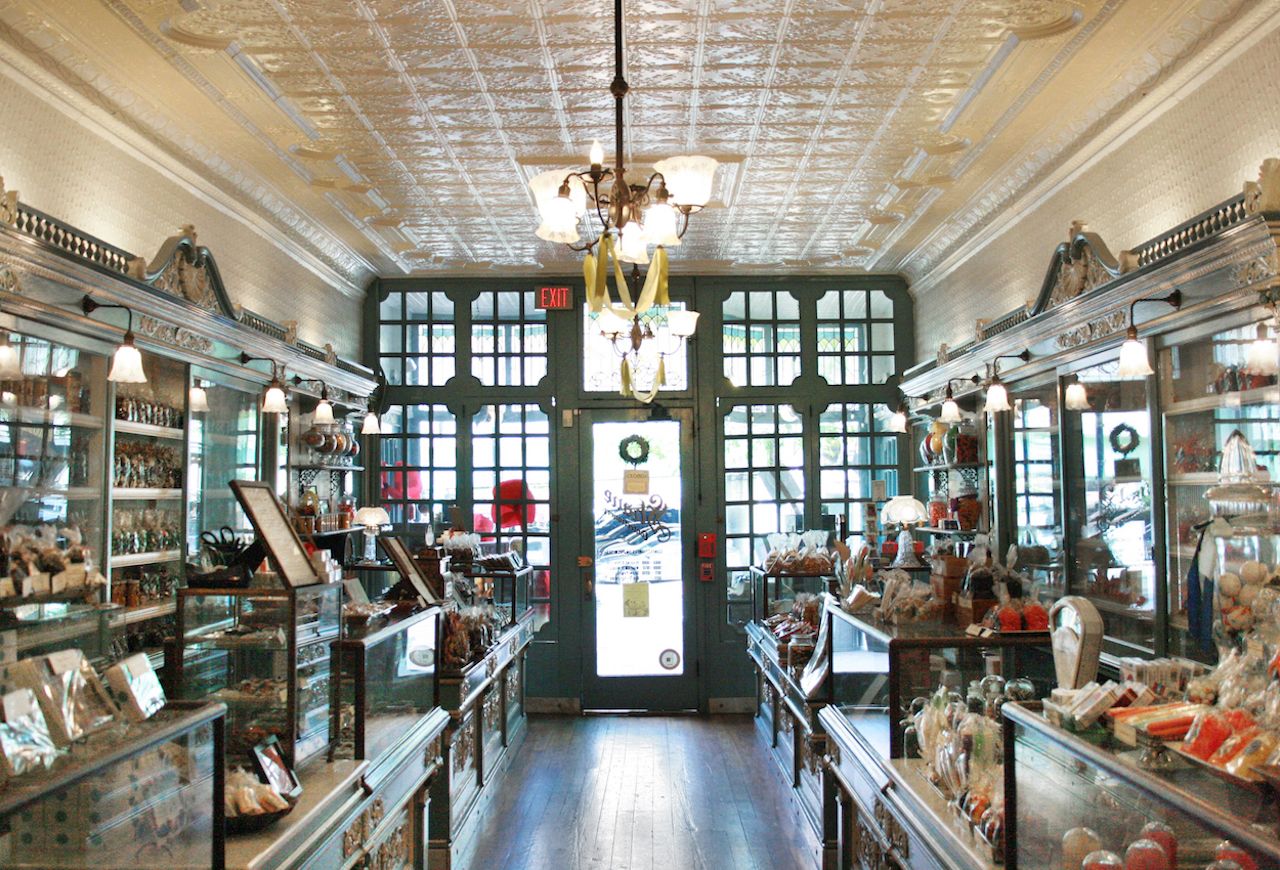We live in an era of start-up abundance with countless avenues for entrepreneurs. Incubators and accelerators help promising start-ups get to market faster and position them to develop their growth pipelines as fast and sustainably as possible. Investors of all kinds are looking for the next unicorn, in other words the next start up to invest in that will reach a valuation of $1 billion. Venture Capital (VC) available globally is in the billions. What are they all looking for? A rich return on their investment, preferably sooner rather than later. The point after all in an investment is a return. However, there has become an obsession with scaling companies as fast and as far as possible. It would appear that all the investors’ eyes are on the big exit, the big moment when they cash in on their investment and make orders of magnitude more than they put in. This mindset of a clear growth pipeline to rapidly scaling growth is pervasive and has become an obligatory part of start-up pitch decks, which in return has become an obligatory part of the business model design. What is the problem?
If the only businesses that receive support, recognition and investment are those that scale then we run the risk of losing out on all the non-scaled businesses that were to be created – and those are important too. These are businesses with smaller profit margins which may or may not use the latest digital technologies.
These four international examples showcase successful businesses that stood the test of time, and did start on the business plan of scale that VCs expect the companies they invest in to scale today.
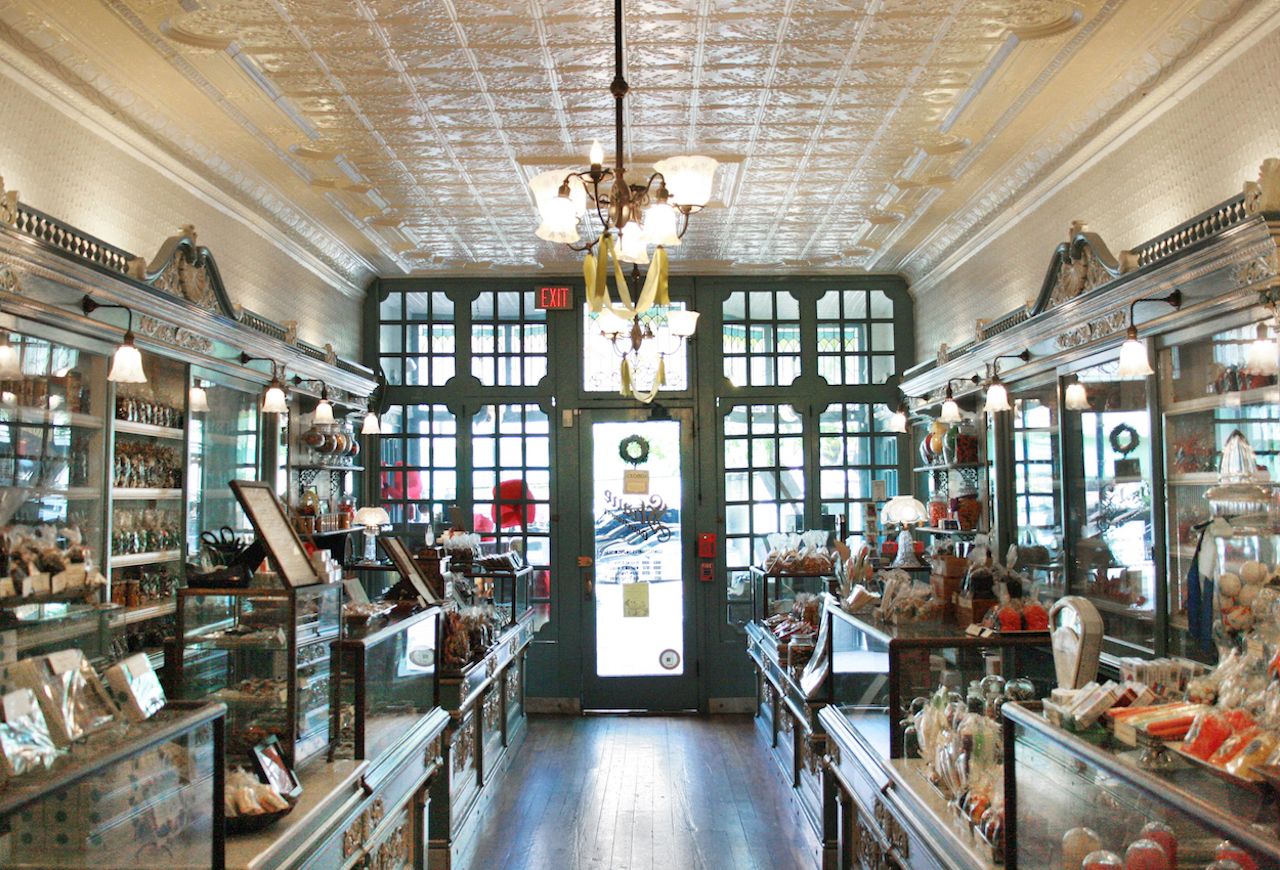
Image source: http://uskings.us/news/us-records/shane-confectionery-pennsylvania-state-the-longest-running-confectionery-business-in-the-united-states
[United States] Philadelphia’s Shane Confectionery is America’s longest running confectionery business. It has been operating at the same shop in the same location (110 Market Street) making and selling candy since 1863! It was founded by candy maker Samuel Herring who had several properties in the 1940s which focused on wholesale confectionery. His son took over after the American Civil war and continued the business, the rest is history as 157 years later in 2020 it is still in the exact same location selling its famous clear toy candy. This American business did not receive any bailouts, it made it through the Civil War, and through the 2008 recession and continues strong. If Samuel Herring tried to start his candy making business today and looked for investment, he would have been asked how clear toy candies can be scaled and perhaps be made into a mobile game… like Candy Crush which is the most profitable mobile game making just under $1 billion in 2018 alone. Today it is one of Philadelphia’s attractions and one source of culinary city pride. Would Samuel Herring have been able to start his small confectionery business today?
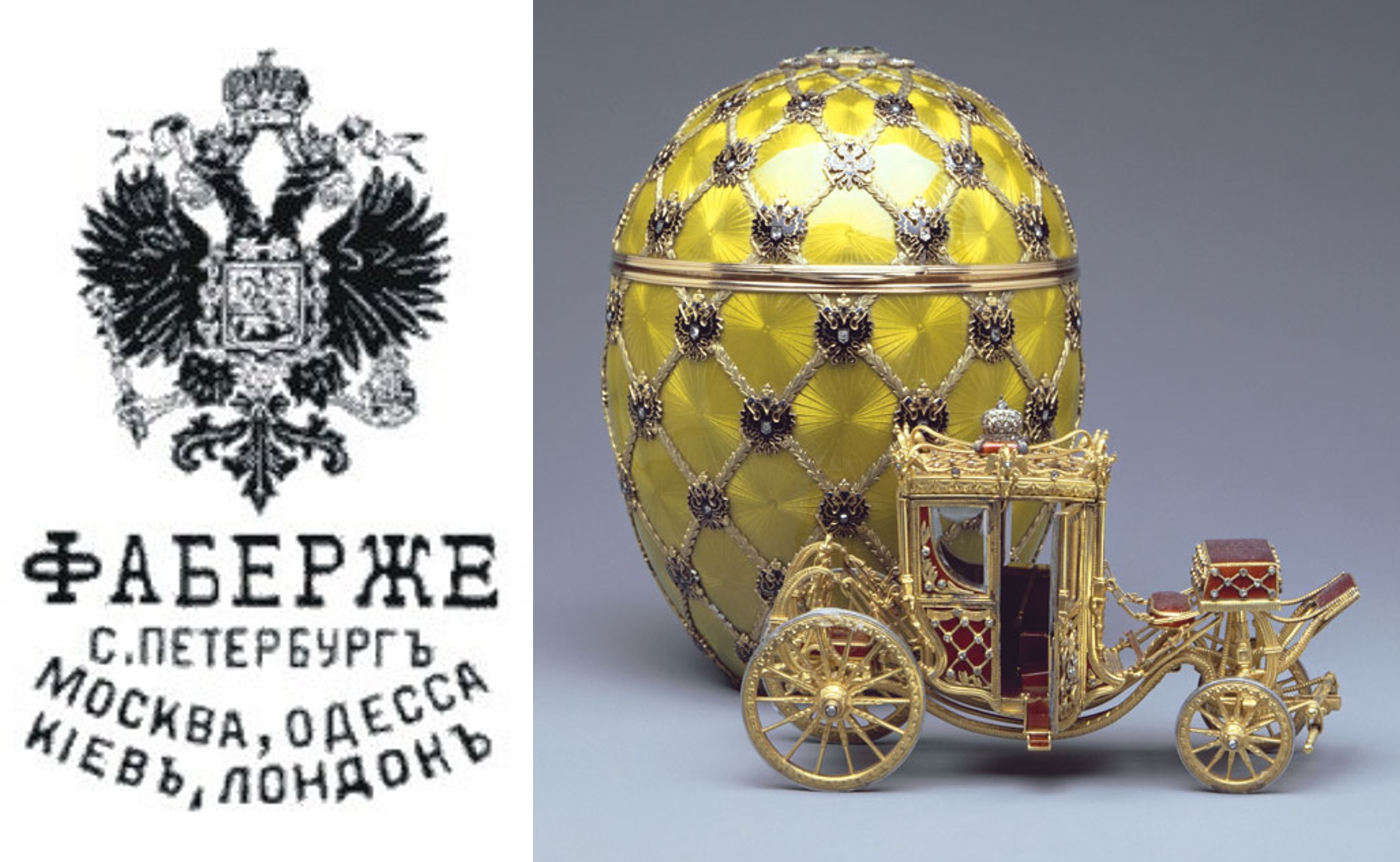
Image source: Faberge.com
[Imperial Russia] Fabergé jewelers was founded in 1842 in Saint Petersburg Imperial Russia by Peter Carl Fabergé. Fabergé was the official goldsmith to the Russian Imperial Court making jewels and jeweled objects – the most famous being the jeweled Imperial Fabergé Eggs. The House of Fabergé earned a worldwide reputation in Europe, East Asia and America. The company was nationalized when the Romanov dynasty fell and the Communist Party took over. All production closed down and Peter Carl Fabergé and his family fled Russia. A few decades later his sons opened Fabergé Paris to continue their work in the meantime Fabergé continued in Soviet Russia in several capacities and had other owners after the fall of the Soviet Union. In 2007 the great grand children of Peter Carl Fabergé were able to part gain ownership of the orginal Fabergé company. Today the company continues to make jewelry and timepieces in the iconic egg shapes. It is a tale of how an iconic company gained success in Imperial times, lost it all with a communist overthrow and managed in exile to rebuild its brand, and continue creating its products and remain revered a century later.
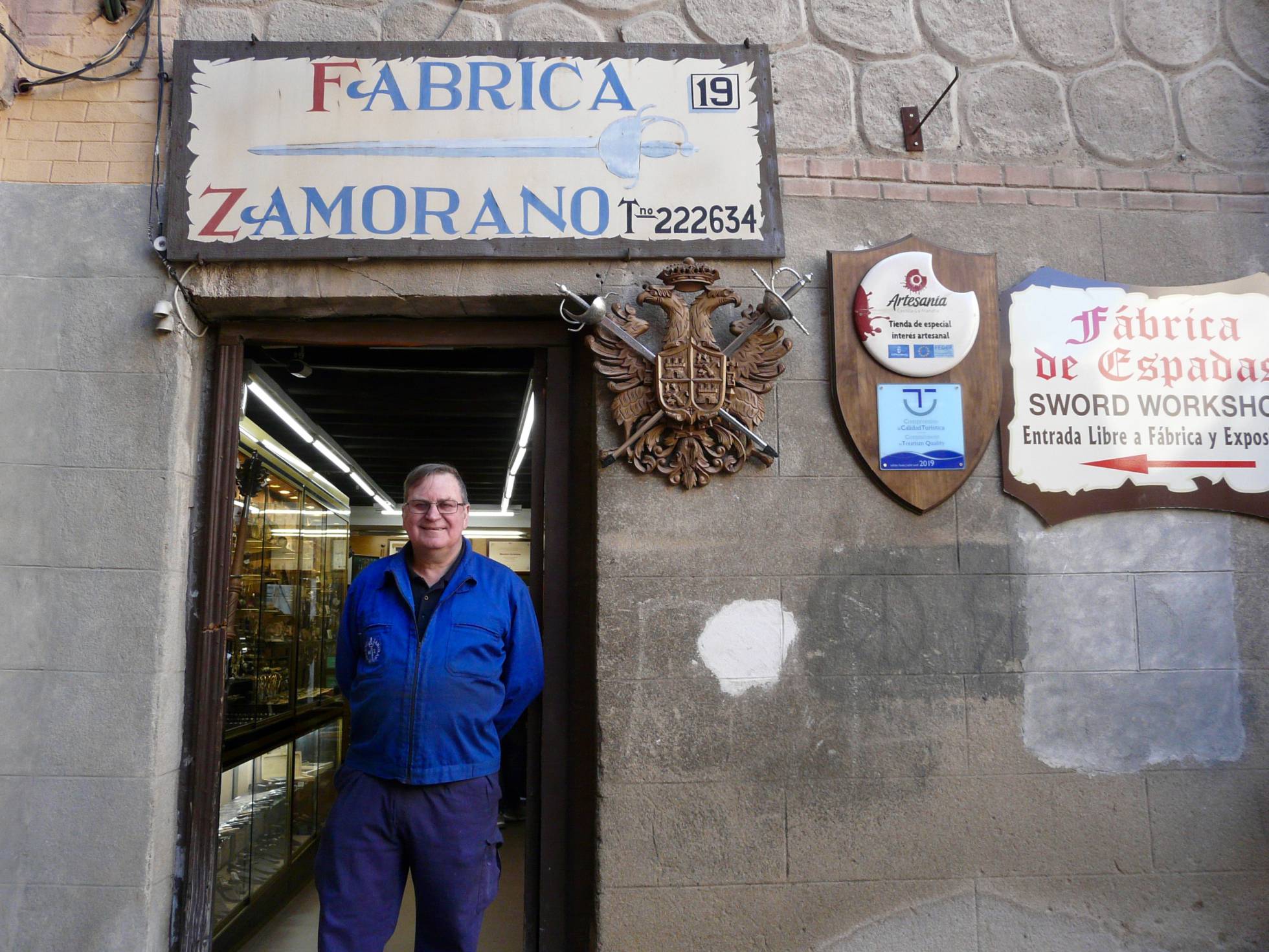
Image source: https://elpais.com/elpais/2019/04/18/trans_iberian/1555610569_707367.html
[Spain] There are companies that preserve a craftmanship at the brink of extinction, for example the making of mighty Toledo swords. Over 2,000 years ago in 5th century B.C.E. blacksmiths in Toledo, Spain were making the most lethal swords. Because of their strength they were chosen “by Hannibal for his army and the Roman legions, defeated by those weapons, adopted them later and supplied their centurions with the dread Toledan swords blades.” Today Toledo is the primary location where sword collectors and Hollywood film makers go for their swords, (ex: Lord of the Rings). Leveraging the craftmanship that has been passed on in Toledo for two millennia Mariano Zamorano Swords is a company that has been making swords in Toledo for over 150 years is. The Zamorano business and the swords making skills have been passed down from five generations of fathers to sons and today the 67 year old owner Mariano Zamorano is one of the last remaining swords craftsmen in Spain. He is getting ready to retire and while his son (also Mariano) who is an aeronautical engineer, has also been taught the skills, is not interested in taking over the business. This potentially means that that the business will close. If someone today wanted to acquire the skills to preserve this craftmanship and sell swords to a niche market would they get investment capital? Mariano Zamorano Swords has been a successful business for over a century and a half – would someone today trying to start a company like this be given the moral and capital support to get their business started?
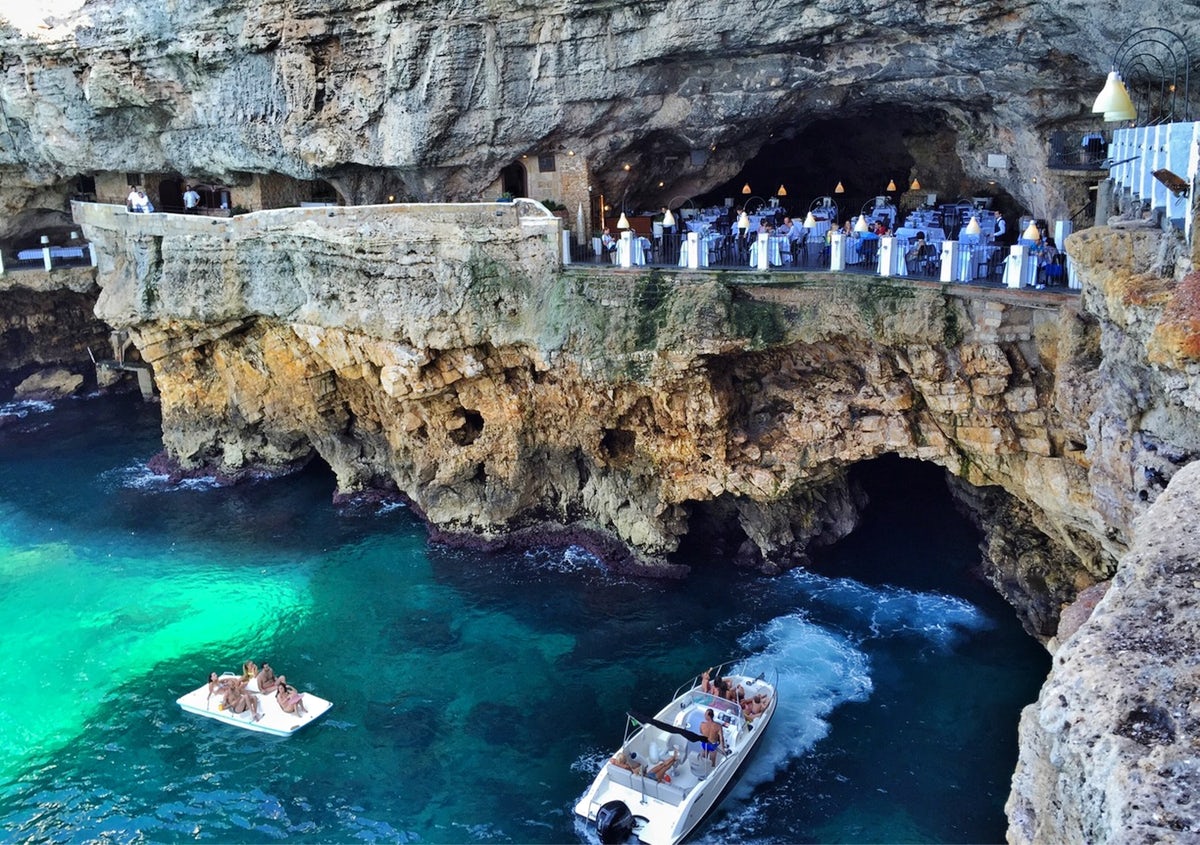
Image source: https://luxeadventuretraveler.com/grotta-palazzese-italys-restaurant-built-inside-a-cave/
[Italy] Cave restaurant Grotta Palazzese hotel restaurant is set in a vaulted limestone cave in the town of Polignano a Mare in Southern Italy. The unique restaurant, which name translates to ‘Palace Grotto,’ has an ancient history. The natural cave in Polignano a Mare was used for banquets and parties since the 1700s because of its exclusive atmosphere. Today this restaurant only opens for only six months of the year (May – October). Pitching for funding for a small restaurant in a particular cave, with no more than 30 tables with 2-4 people capacity, that only opens six months of the year is not something the average VC sees value in. But this restaurant’s value proposition remains strong even if its profit margins will never reach those of artificial intelligence companies. However it will outlast the majority of them this century.
Businesses like these are important to local communities and have a place in them. Government and local grants for businesses would do well to remember that these businesses matter too and successful business come in all shapes and sizes, and they don’t always scale – and that’s ok. There is dignity in building a business that has no intention to become a unicorn, whose value proposition has resulted in sustainable profit margins, has created jobs and continues to remain relevant in changing times.
More often than not, the businesses that scale these days are businesses that have a heavily automated or AI component, that tends to mean less people in the business supply chain. Emerging technology brings tremendous opportunity for business growth as much as it does for new job creation.
With a volatile economy, uncertain trade agreements and an anxious public we need businesses that that don’t necessarily scale nationally or internationally but offer local communities something of their own, that offer employment to the local communities and that have the potential to stand the test of time. It could be the trusted local co-working space in an old factory, that has been revived and doubles as a maker space with a café supporting local bakeries and a concept store supporting creations of the city and its broader metropolitan area. It could also be globally minded small companies such as the values driven tailoring brand such as Empowering Workwear I founded to create a few pieces of made-to-measure storytelling workwear for women that have stories woven in their cloth.
In 1965 the average tenure of companies on the S&P top 500 was 33 years, by 1990 it was 20 years and now it is 14 years. It is expected that 50% of the top 500 companies will be replaced in the next 10 years.
In rapidly changing times with exponential technology,
the real ‘unicorns’ are going to be companies whose value proposition remains relevant in 2100.
There are good chances that the people living in that time will be able to enjoy glass candy at the next Shane Confectionery and delight in the latest Fabergé creations.
Will your company be around?


